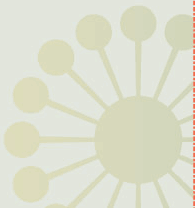TRUTH
AND DISCERNMENT When Punxatawny Phil made his annual prognostication about the weather this year, he forecast six more weeks of winter. Since groundhogs don't talk, except in commercials, his umbral observation had to be interpreted by some men in top hats. They promptly predicted that there would be six more weeks of winter. Someone with nothing better to do checked the records and found that during the past century Phil and his predecessors were right only 39% of the time. I guess you can't trust groundhogs–or their interpreters. On the other hand, Phil is right, and he would be so if each year he made the same prediction that winter would end after six weeks, for the seventh week would always be the vernal equinox, or the first day of Spring. How easy it is to make reality be what we want it to be. New York's Miner Institute recently issued these "safety facts" about carrots: "Almost 99.9% of people who die from cancer and heart disease have eaten carrots. Nearly all sick people have eaten carrots. Obviously, the effects are cumulative. 99.9% of people involved in car crashes ate carrots within 60 days of their accidents. 93.1% of juvenile delinquents come from homes where carrots are served regularly. Among those born in the nineteenth century or earlier ate carrots, there has been essentially a 100% mortality rate." Maybe I'll stop eating carrots. Knowing the facts, observing events, even assessing empirical evidence are not the same as discovering the truth. This is especially the case when it comes to religion and spiritual direction. Jesus was right when he asked, "What is truth?" And Paul was right on the mark when he said Awe walk by faith and not by sight." Living is indeed a matter of trust, interpretation, and faith. I cringe whenever some televangelist pronounces absolutely, "The Bible says. . . "and then proceeds to give me his interpretation of how he understands the scripture. He may hear the Word of God differently from how you and I might hear it. So how do we know what we ought to believe and how can we be sure that what we are being told is the "truth?" The discernment of spiritual truth begins with the Bible, but its interpretation lies within a community of faith and its historic tradition. In other words, what has the church collectively understood as the essential tenets of its belief, and how has it arrived at its belief. Textual criticism, ecclesiastical councils, theological treatises, and other factors all are part of the mix. However, a third ingredient of truth discernment is also critical. What does your intellect, reason, experience, intuitive wisdom tell you? How does God speak to you? St. Joan of Arc said that she heard the voice of God telling her what to do. But so did Charles Manson who murdered five people. How can you be sure that the voice you hear inside your head is angelic or demonic, exonoia or schizophrenia? Knowing what God is saying is not an easy process. Discernment cannot be done alone. The season of Lent is a time of spiritual reflection, of conversation, of self-discovery. I invite you to engage in that process through worship, small group meetings, and other opportunities for spiritual enrichment and growth. May God bless each of you on your spiritual journey.
|
|
